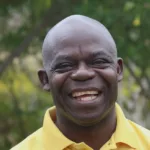Discover the beauty of Robertsport – Liberia’s hidden gem.
ROAMOPEDIA
Robertsport
Discover the beauty of Robertsport – Liberia’s hidden gem.
- Home
- /
- Country
- /
- Liberia
- /
- City
- /
- Robertsport
- / Discover the beauty of Robertsport – Liberia’s hidden gem.
Related
All related contents.
Related Posts
Discover the beauty of Liberia’s Harper with the breathtaking Cape Palmas Lighthouse.
Discover the tranquility and grandeur of St. Peter’s Lutheran Church in historic Monrovia, Liberia.
Discover the heart of Liberia in Gbarnga – where history, culture, and community come alive.
ELWA Beach in Monrovia, Liberia – a serene oasis for ultimate beach relaxation.
Discover the natural wonders of Liberia at Sapo National Park.
Discover the tranquil beauty of Lake Piso in Robertsport, Liberia.
Experience paradise at Robertsport Beach, Liberia’s ultimate surf and relaxation destination.
Discover the grandeur of Liberia’s Executive Mansion in Monrovia.
Discover Liberia’s rich history at the Centennial Pavilion in Monrovia.
Discover the rich history of Liberia at Liberty Square in Monrovia.
Discover the beauty and culture of Buchanan, Liberia’s vibrant port city.
Experience the beauty and history of Liberia in Harper.
Cuttington University: Where history and beauty meet in Gbarnga, Liberia.
Discover paradise at Silver Beach, Monrovia’s top beach destination.

Liberia – Tourism and travel highlights
Discover Liberia’s vibrant past and present at the National Museum of Liberia in Monrovia.
Discover the lively charm of Monrovia, Liberia’s vibrant capital city.
Experience the vibrant culture of Liberia at Waterside Market in Monrovia.
Discover Providence Island, where freedom and history thrive amidst lush greenery.
Ducor Hotel: A relic of luxury, now a picturesque landmark.
Related
Related contents and articles.
Related Posts
- Print
- Share
- +-Font Size